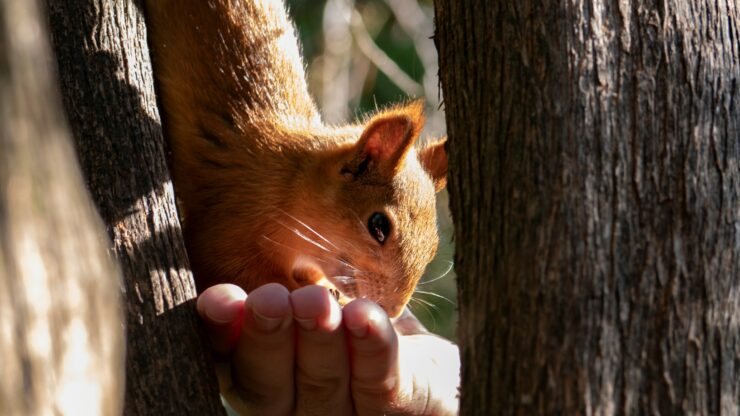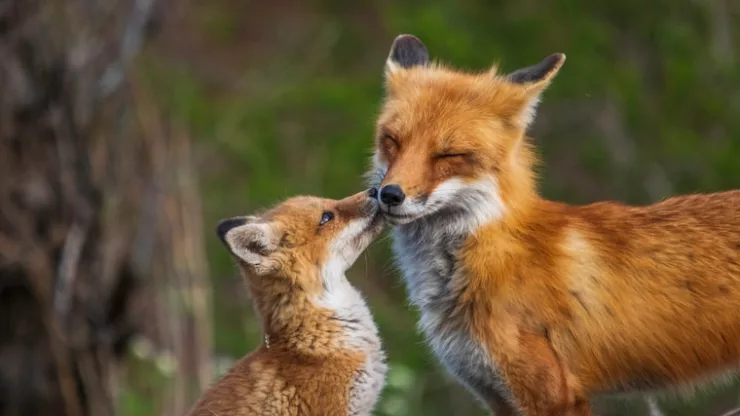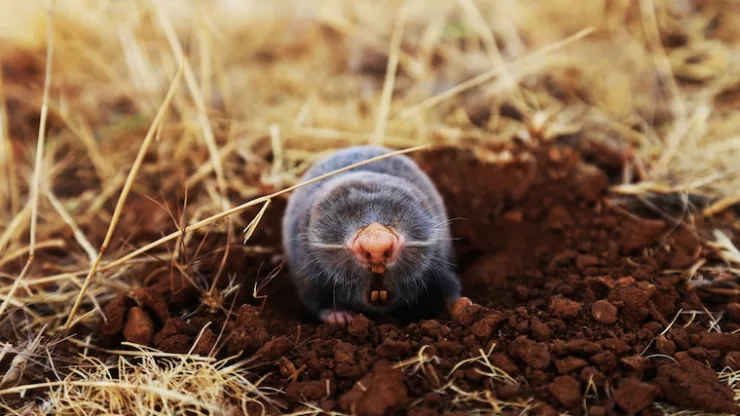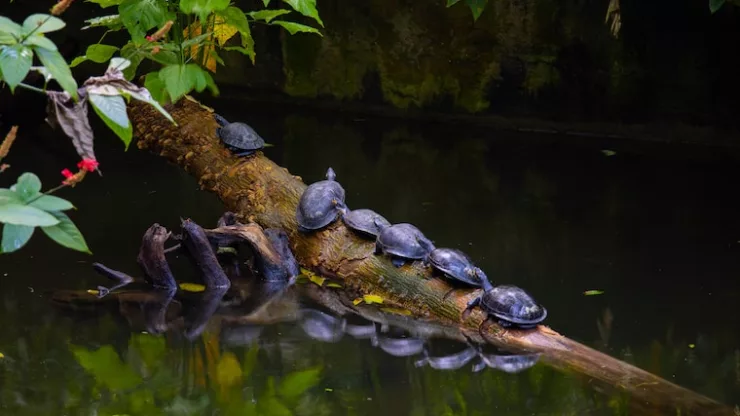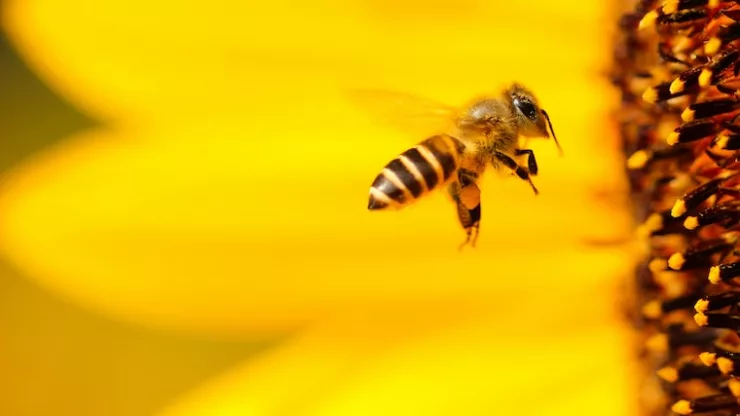Urban Squirrels’ Mystery Menus: Delicious Discoveries!
Squirrels are one of the most common urban wildlife species, and their presence in cities is often taken for granted.
However, these nimble rodents have adapted well to city life, and their diet has evolved to include a surprising array of foods.
In this article, we will explore the mystery menus of urban squirrels and examine the implications of their diets for their health and management.
Jump to Section
Introduction
Urbanization has significantly impacted wildlife and their habitats.
As development encroaches on natural areas, urban wildlife species must adapt to new environments and food sources.
One such adaptation is the change in diet observed in urban squirrels.
A Brief Overview of Urban Squirrels and Their Behaviors
Squirrels are members of the rodent family and are found throughout the world.
In urban areas, they are often seen scurrying along power lines, climbing trees, and foraging for food.
Urban squirrels are typically grey squirrels, although other species may also be present in some areas.
Squirrels are omnivorous, meaning they eat both plants and animals. Their diet varies depending on the season, availability of food, and their location.
In natural habitats, squirrels feed primarily on nuts, seeds, fruits, and insects.
The Mystery Menus of Urban Squirrels
What Do Urban Squirrels Eat?
Urban squirrels have a diverse diet that includes a variety of human foods.
While nuts and seeds still make up a significant portion of their diet, urban squirrels also consume:
- Fast food
- Junk food
- Bread
- Chips
- Pizza
- French fries
- Fried chicken
- Ice cream
The Surprising Variety of Foods Found in Urban Squirrel Diets
Urban squirrels have been observed eating a variety of unexpected foods, such as:
- Pizza crusts
- Hot dogs
- Grilled cheese sandwiches
- Donuts
- Candy bars
- Cookies
These findings suggest that urban squirrels are more adaptable than previously thought and can exploit new food sources.
How Do Urban Squirrels Adapt to Eating Human Food?
Urban squirrels have developed several adaptations that allow them to eat human food.
For example, they have larger jaws and teeth than their rural counterparts, allowing them to bite into harder foods such as nuts and seeds.
Additionally, urban squirrels have a more varied diet than their rural counterparts, which may have led to changes in their digestive system.
Examining the Health Impacts of Urban Squirrel Diets
The Nutritional Value of Urban Squirrel Diets
While urban squirrel diets have a surprising variety, they may not be as nutritious as their natural diets.
For example, junk food and fast food are often high in calories, sugar, and fat, which can lead to obesity and other health problems.
The Risks of Urban Squirrels Consuming Human Food
Urban squirrels that consume human food are at risk of several health problems, including:
- Tooth decay
- Malnutrition
- Obesity
- Diabetes
Additionally, human food may contain harmful ingredients such as preservatives and artificial colors that can be harmful to squirrels.
The Impact of Urban Squirrel Diets on Their Health
Studies have shown that urban squirrels that consume human food have higher levels of cholesterol and triglycerides than those that eat a natural diet.
This suggests that a diet high in human food may have negative effects on squirrel health.
The Role of Urbanization in Urban Squirrel Diets
How Urbanization Affects Squirrel Diets
Urbanization has a significant impact on squirrel diets. As natural habitats are replaced with urban environments, squirrels must adapt to new food sources.
Additionally, urban areas may have a higher concentration of human food waste, making it easier for squirrels to access these foods.
The Relationship Between Human Food Waste and Urban Squirrel Diets
Human food waste is a significant contributor to urban squirrel diets. Food waste from homes, restaurants, and grocery stores provides a readily available source of food for squirrels.
However, this food may not be suitable for squirrel consumption and can have negative health effects.
The Future of Urban Squirrels and Their Diets
As cities continue to grow, urban squirrels will likely continue to adapt to new food sources.
However, it is important to monitor their diets and health to ensure that they are not negatively impacted by human food.
Implications for Urban Squirrel Management
The mystery menus of urban squirrels have significant implications for their management. To ensure the health and well-being of urban squirrels, it is important to:
- Educate the public about the risks of feeding squirrels human food
- Encourage proper waste management practices
- Monitor squirrel health and diet
Final Thoughts on Urban Squirrels’ Mystery Menus
Urban squirrels’ mystery menus are a testament to their adaptability and resilience in the face of urbanization.
However, it is important to remember that their health and well-being must be considered when managing urban wildlife.
FAQ
What Should I Do If I See an Urban Squirrel Eating Human Food?
It is best to avoid feeding urban squirrels human food.
If you see a squirrel eating human food, you can discourage this behavior by making loud noises or throwing objects near the squirrel (not at it).
Can Urban Squirrels Survive on a Diet of Human Food?
While urban squirrels can survive on a diet of human food, it may not be as nutritious as their natural diet and can have negative health effects.
What Should I Do If I Find a Sick or Injured Urban Squirrel?
If you find a sick or injured urban squirrel, it is best to contact a local wildlife rehabilitation center for assistance.
Do not attempt to handle the squirrel yourself, as they can carry diseases and may bite or scratch when scared.
I’m a nature enthusiast and creator of Metro Wilds and have spent years exploring the great outdoors.
With a passion for environmental conservation and sustainability, I have dedicated my career to writing about the beauty and wonders of nature, as well as the threats facing our planet.
Contact me at [email protected] for assistance.

